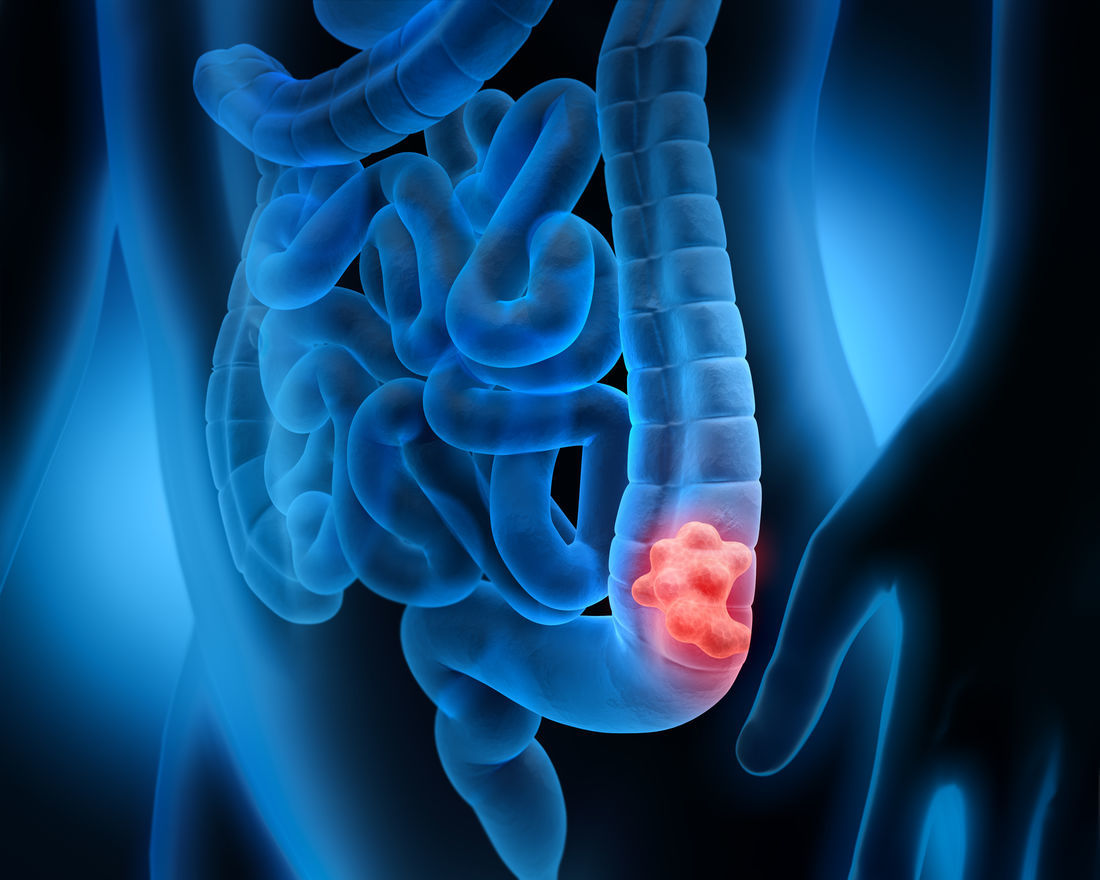Bowel CancerCommonly referred to as colorectal cancer, bowel cancer can affect any part of the large bowel (colon) or rectum. What is the colon and rectum?The colon is the first 1.8 metres of the large bowel. It mainly absorbs water. The rectum and anal canal (the last 15 centimetres of the large bowel) stores waste material (faeces) until they are passed from the body through the anus. The anal canal ends at the anus, the opening of the large intestine to the outside of the body. How does bowel cancer start?Most bowel cancers start as benign (non-threatening growths) known as polyps – on the lining of the bowel. Polyps are usually harmless; however some polyps can become cancerous (malignant) and if left undetected, can develop into a cancerous tumour. |  |
Facts and Statistics about Bowel Cancer
Risk factors for bowel cancerExact cause is unknown. The following factors increase someones risk of colorectal cancer:
| Symptoms of bowel cancer
Diagnosis
|
TreatmentStaging is based on whether the cancer has invaded nearby tissues or lymph nodes and whether the cancer has spread to other parts of the body. The exact stage is often not determined until after surgery. Medical treatmentChemotherapy may be given either before of after surgery depending on the stage of the cancer. For rectal cancer, radiation therapy may be used as well. SurgerySurgery is required to remove the cancer. The cancer and lymph nodes together with a small portion of normal bowel on either side of the cancer are removed. The normal bowel is then reconnected to allow normal bowel function. Traditional open bowel surgerySurgeons traditionally make a 10-15 cm cut on the tummy to gain access to the bowel and remove the cancer. Discomfort associated with these incisions can prolong time in hospital and recovery time to get back to normal activities. | Laparoscopic (Keyhole) surgeryA laparoscopic trained surgeon makes several small cuts, about 1 cm in size. Using a specialised camera attached to a telescope, he can see inside the abdomen and use other instruments to perform the surgery. The benefits include less pain due to smaller cuts, a shorter hospital stay, early return to normal activities and less scarring. Robotic Surgery for Bowel cancerThis is a newer type of surgery for bowel cancer. The robotic trained surgeon manipulates a robot that moves the surgical instruments. Benefits of Robotic surgery
How to prevent bowel cancer?It is important to know the symptoms of bowel cancer and have them investigated if they persist for more than two weeks. Detection and removal of polyps through colonoscopy reduces the risks of bowel cancer. Screening typically starts at the age of 50 in someone with average risk. Those with higher risks are advised to receive their first screening at a younger age. |